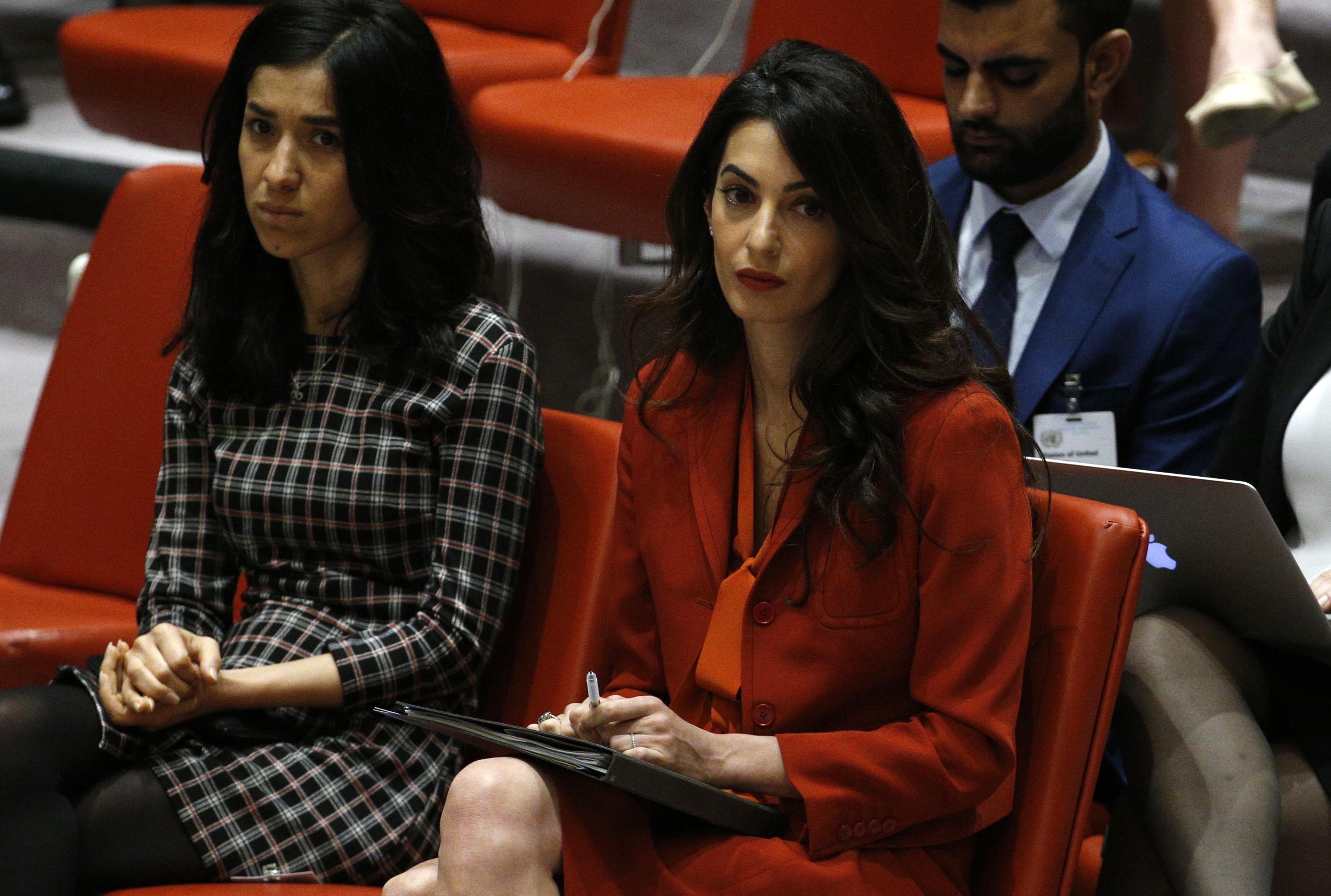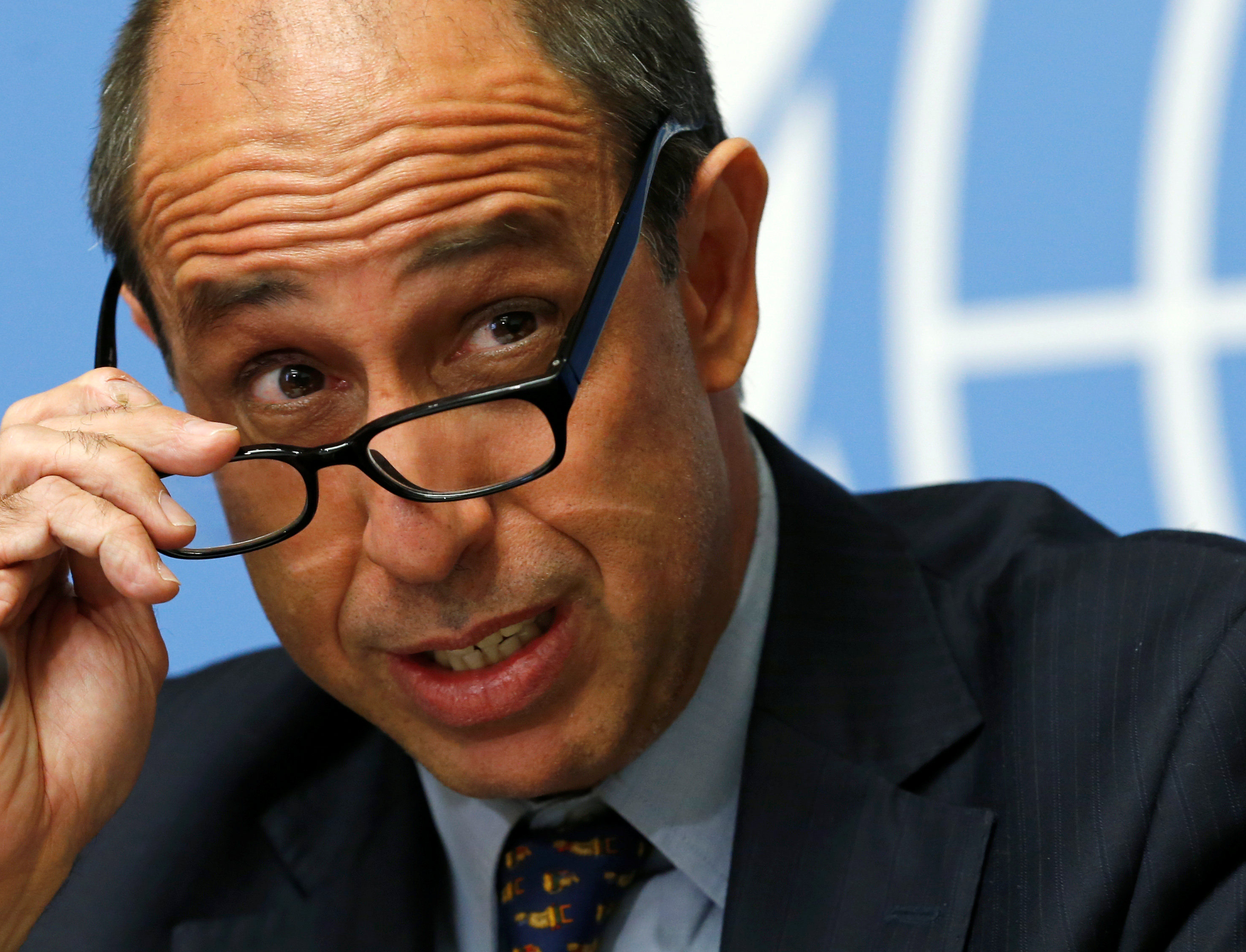
By Michelle Nichols
UNITED NATIONS (Reuters) – The United Nations Security Council on Thursday approved the creation of a U.N. investigative team to collect, preserve and store evidence in Iraq of acts by Islamic State that may be war crimes, crimes against humanity or genocide.
The 15-member council unanimously adopted a British-drafted resolution, after months of negotiations with Iraq, that asks Secretary-General Antonio Guterres to establish a team “to support domestic efforts” to hold the militants accountable.
Use of the evidence collected by the team in other venues, such as international courts, would “be determined in agreement with the Government of Iraq on a case by case basis.”
U.N. experts said in June last year that Islamic State was committing genocide against the Yazidis in Syria and Iraq to destroy the minority religious community through killings, sexual slavery and other crimes.
International human rights lawyer Amal Clooney and Nadia Murad, a young Yazidi woman who was enslaved and raped by Islamic State fighters in Mosul, have long pushed Iraq to allow U.N. investigators to help.

Activist Amal Clooney (R) attends a United Nations Security Council meeting set to adopt a resolution to help preserve evidence of Islamic State crimes in Iraq, during the 72nd United Nations General Assembly at U.N. Headquarters in New York, U.S., September 21, 2017. REUTERS/Brendan Mcdermid
The Security Council met during the annual gathering of world leaders for the U.N. General Assembly.
Iraq’s foreign minister Ibrahim al-Jaafari officially requested international help in a letter to the Security Council last month. The council could have established an inquiry without Iraq’s consent, but Britain wanted Iraq’s approval.
Islamic State’s self-proclaimed caliphate effectively collapsed in July, when U.S.-backed Iraqi forces completed the recapture of Mosul, the militants’ capital in northern Iraq, after a nine-month campaign.
(Reporting by Michelle Nichols; editing by Grant McCool)

